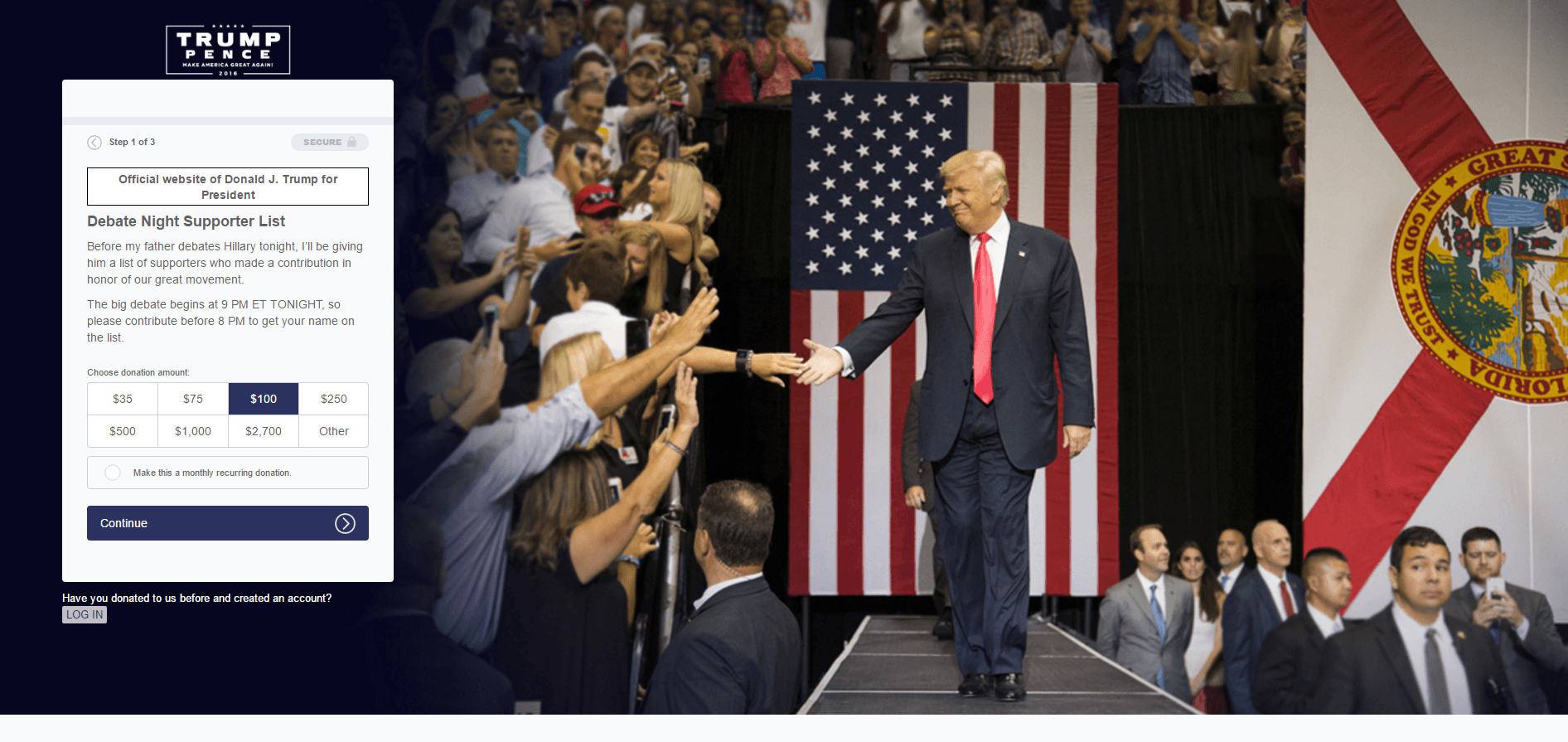Digital campaigns are all about visuals in today’s digital world.
According to Deposit Photos on visual trends in 2019,
“To get users to pay attention, visual content across platforms has to have an edge. Brave, bold and sometimes daring choices of visuals are becoming prominent for a reason.”
Social Media Examiner’s 2018 Industry Report shows that 80 percent of marketers use visual assets in their content marketing. And 11 percent more B2C marketers than B2B marketers attest that visual content is the more important type of content today.
Retail marketing without visual content can be boring, unattractive, and will yield low ROI. Visual cues will, however, help direct attention while portraying a message with visual methods of communication, including videos, photos, infographics, memes, and comics.
Using the appropriate visual cues on landing pages will help direct attention and engagement to the intended CTA and if they will get any value from it. You could use bright banners, exclamation marks, arrows, product images, and more.
Here are four visual design cues ecommerce marketers should focus on in 2019:
1. Arrows
Arrows are one of the most commonly used visual cues because they explicitly describe what you should do and are easily understood. They are often used to point to a CTA and could come in different forms. According to ConversionXL, when it comes to using explicit visual cues, an arrow outperforms a human’s line of sight as humans tend to spend twice the average time looking at forms with arrows.
The Gift Rocket design below is an example of a creative way to use arrows. They simply directed the top of the rocket toward what is important.

To get the best of arrow cues, ensure the color of your arrows align with the rest of the design and remember not to use more than one arrow, unless where necessary. Also, be creative with your arrows and remember that they have the tendency to increase traction and sales.
2. Color
Color is one of the most important aspects of design and is also a form of communication. The choice and usage of your brand color play a huge role in how you interact with and engage your audience.
Colors have a strong connection with the human mind, as they could help set a mood, make a memory stick or invoke memory, and also affect decision making. It is then imperative that marketers learn how to implement various colors in a campaign to draw attention and help their customers decisions.
Your choice of color could be based on age, location, gender, or trends. Or you could simply use a color that depicts what the brand is about and represents the emotion you want your audience to associate with. Know what your brand stands for and choose a color that accurately depicts it. For example, the color blue could be associated with trust, loyalty, confidence, wisdom, and faith. A popular company that uses this color is Facebook, with its core value being transparency and trust.
The Oxford Summer School also uses the same shade of blue which stands for trust, integrity, and communication across its website and social media platforms. This does not only depict excellence and a professional brand identity but also helps improve brand recognition by 80 percent.

3. Line of sight
A line of sight can also function as an explicit visual cue. Based on the cognitive bias of deictic (or “pointing”) gaze, eye directions on an image naturally direct viewers to look in the same direction as the line of sight. People often follow the line of sight of others, so if someone on a screen is looking at a quote, form, or testimonial, others will follow. This technique can be used to influence attention and connect emotions to your offer.
This technique was used by both presidential candidates (Trump and Clinton) in the 2016 US elections. Using the line of sight on landing pages as seen in the pictures below, Clinton and Trump’s marketing team guided visitors to the forms on their respective landing pages.

Like arrows, the line of sight in an image can be used to draw attention to a CTA button or something significant on the image. It could be a simple eye illustration, an animal picture, or a human photograph looking towards the action point as seen in the image below.

This technique is particularly effective for social media ads with pop up forms, testimonials, and landing pages. Whatever you do make sure, don’t use a human looking away from the intended target.
4. Product imagery
Consistent and high-quality imagery that perfectly describes your product or service is one of the best ways to engage your audience with your brand.
Humans have a short attention span, which leaves you with three seconds or less to capture your audience. Your social media images represent your brand and how your customers view your products to determine if they will purchase or not.
To get the perfect product imagery for your social media that will engage your audience, use high-quality images and high color accuracy. Also, take great close-up photos from different angles to help your customers easily analyze the product.
Conclusion
Visual design is not limited to using videos and gifs on landing pages, and adding cues yield an effective way to convince visitors to act. Don’t be limited by your visitors’ attention span, grab the bull by the horn and guide visitors to a mutually desired outcome with the help of visual cues. Visual design cues, if maximized properly, will help increase conversion ratio, customer satisfaction.
Tell us how you have or plan to make your website stand out with interesting usage of visual design cues.
Pius Boachie is the founder of DigitiMatic, an inbound marketing agency.
The post Four visual design cues ecommerce marketers should use in 2019 appeared first on Search Engine Watch.
from Content – Search Engine Watch https://ift.tt/2Joqnzw
via SEW ref=da&site=blogger">IFTTT

No hay comentarios.:
Publicar un comentario